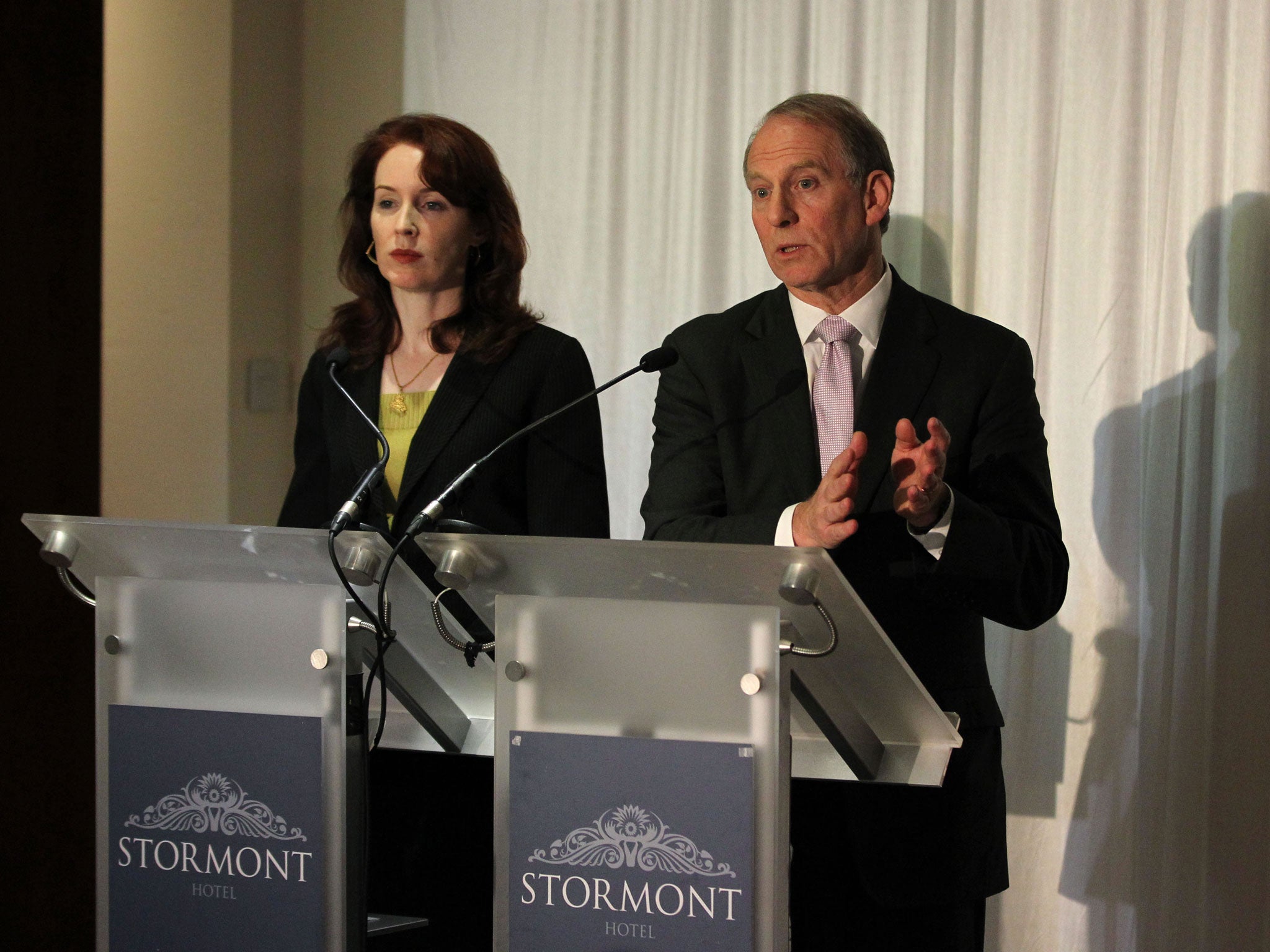Disappointment as Northern Irish deal eludes parties
“This process is not dead, but it is far from finished,” says American diplomat chairing talks

Your support helps us to tell the story
From reproductive rights to climate change to Big Tech, The Independent is on the ground when the story is developing. Whether it's investigating the financials of Elon Musk's pro-Trump PAC or producing our latest documentary, 'The A Word', which shines a light on the American women fighting for reproductive rights, we know how important it is to parse out the facts from the messaging.
At such a critical moment in US history, we need reporters on the ground. Your donation allows us to keep sending journalists to speak to both sides of the story.
The Independent is trusted by Americans across the entire political spectrum. And unlike many other quality news outlets, we choose not to lock Americans out of our reporting and analysis with paywalls. We believe quality journalism should be available to everyone, paid for by those who can afford it.
Your support makes all the difference.Northern Ireland will enter 2014 picking up the pieces of yet another unsuccessful political initiative aimed at clearing up the unresolved issues left in the wake of the Troubles.
The sense of disappointment was palpable in Belfast today after marathon overnight talks chaired by former US diplomat Richard Haass failed to find agreement on any of three topics he was asked to tackle.
Despite the air of anti-climax, the five major Belfast parties will have little option but to return to the negotiating table at some stage to address the issues of marching, flag-flying and the past which bedevil the peace process.
It is not immediately clear when a new effort can be launched. Much groundwork will be likely be needed first on establishing what the outstanding issues are, and whether they could be best addressed by a renewed Haass involvement or by some other format.
Dr Haass and others insisted that the weeks of intensive discussions and draft documents had been valuable in clarifying many points and identifying areas of common ground. “This process is not dead, but it is far from finished,” he said. “All the parties support significant parts of it. At the same time, all have some concerns.”
None of seven draft documents produced by Dr Haass have been released, and yesterday he called for their publication in the apparent belief that they would be generally seen as a reasonable basis for compromise.
Dr Haass said that while progress had been made on all three topics, flags and symbols had proved to be “the toughest area of negotiations.”
He said he truly believed his blueprint provided a foundation for reconciliation.
Prime Minister David Cameron also stressed the positives, declaring: “Although it is disappointing the parties have not been able to reach full agreement at this stage, these talks have achieved much common ground, providing a basis for continuing discussions.”
Similar sentiments were voiced by Irish prime minister Enda Kenny, who said he hoped the talks could provide a platform for renewed efforts to achieve accord.
One unusual feature of the initiative’s conclusion is that - so far at any rate - both unionist and nationalist representatives have refrained from blaming each other.
Jeffrey Donaldson of the Democratic Unionist party said the broad architecture of the agreement was acceptable but that “some of the language and detail is not what we would have chosen”.
Sinn Féin president Gerry Adams said what had been suggested was “not perfect” but added he believed there was “a basis for a deal in the proposals”.
Join our commenting forum
Join thought-provoking conversations, follow other Independent readers and see their replies
Comments